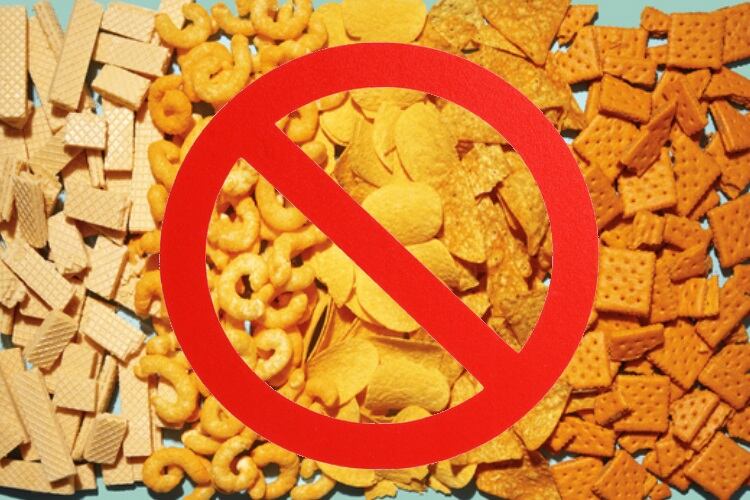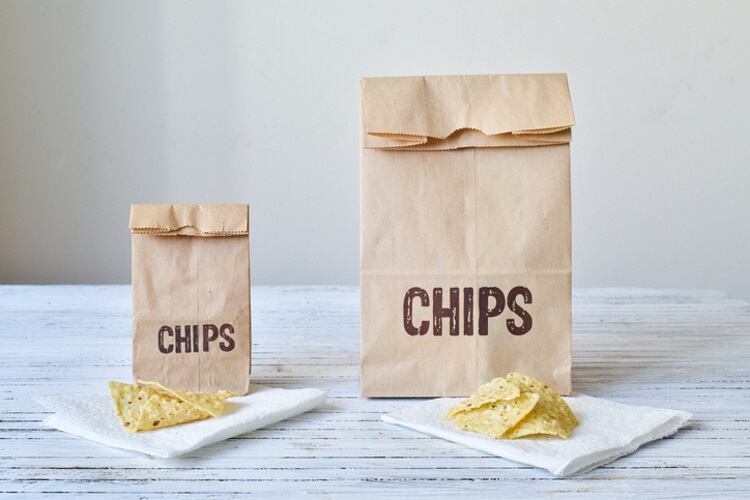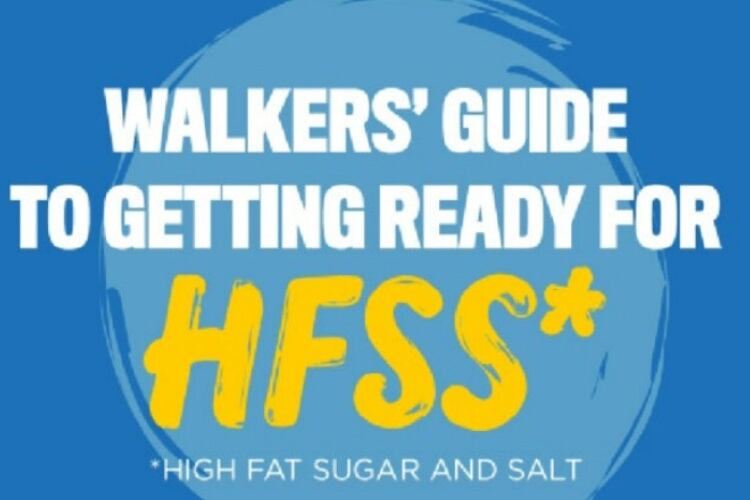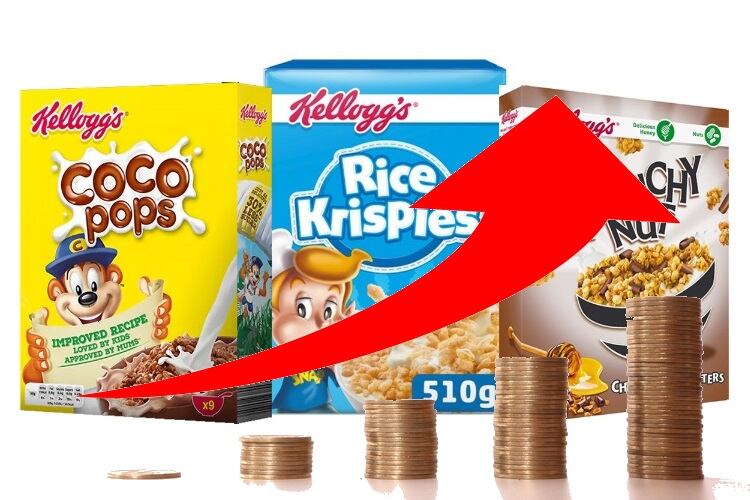Instore – both physical and online – promotion restrictions come into force from 1 October, while restrictions on volume-based promotions have been delayed for another year.
“Rightly, the restrictions on multibuy promotions have been delayed to help with the cost-of-living crisis, but, frankly, they should be scrapped altogether,” said Chris Whitehouse, chair of food sector lobbyists Whitehouse Communications.
“The location restrictions are insanely pettifogging and won’t impact on eating habits, while being a real headache for retailers and overworked trading standards officers who have better things to do than measure how many centimetres snacks are from tills.
“The rules are completely inconsistent with the new Prime Minister Liz Truss’ commitment to free business from unnecessary regulatory burdens.
‘We’ve already heard of some trial store layouts where HFSS gondola ends are stuffed with deals on booze and that HFSS products will simply shift to the ‘food-to-go’ section. How is that going to improve public health?” he queried.
TV and online advertising restrictions will come into force from the start of 2023.
What does this all really mean?
HFSS refers to pre-packaged foods that are high in fat, salt or sugar as classified by the Department of Health’s nutrient profiling model, ranging from breakfast cereals to cakes, biscuits and pastries, to snacks like potato crisps and pretzels.
The new regs severely restricts the ability of medium and large companies to promote these types of products. They cannot offer ‘multi-buy’ promotions (buy one get one free, multibuy) for HFSS products, nor are they entitled to promote them at key locations (checkout, aisle ends store entrance), along with the online equivalent of these locations.
A further ban is being placed on advertising these sorts of products before the 9pm watershed on TV, or through paid digital ads.
The move is being enforced in the belief it will tackle its mounting obesity epidemic by helping customers make more informed food choices. However, it’s heavily disputed how much it will actually impact the nation’s obesity rate, and – coming in as it has in this inflationary environment – has garnered a lot of critics.

What constitutes an HFSS product?
The UK’s Department of Health (DoH) nutrient profiling model compares energy, saturated fat, total sugar and sodium against fruit, vegetables and nut content, fibre and protein.
Points are allocated on the basis of 100g of a product, irrespective of its serving size. If it needs to be reconstituted before eaten, the score is calculated after following the manufacturer’s instructions.
Points are awarded for ‘A’ nutrients (energy, saturated fat, total sugar and sodium) and for ‘C’ nutrients (fruit, vegetables and nut content, fibre and protein). The score for ‘C’ nutrients is then subtracted from the score for ‘A’ nutrients to give the final nutrient profile score.
Foods scoring 4 or more points, and drinks scoring 1 or more points, are classified as HFSS.
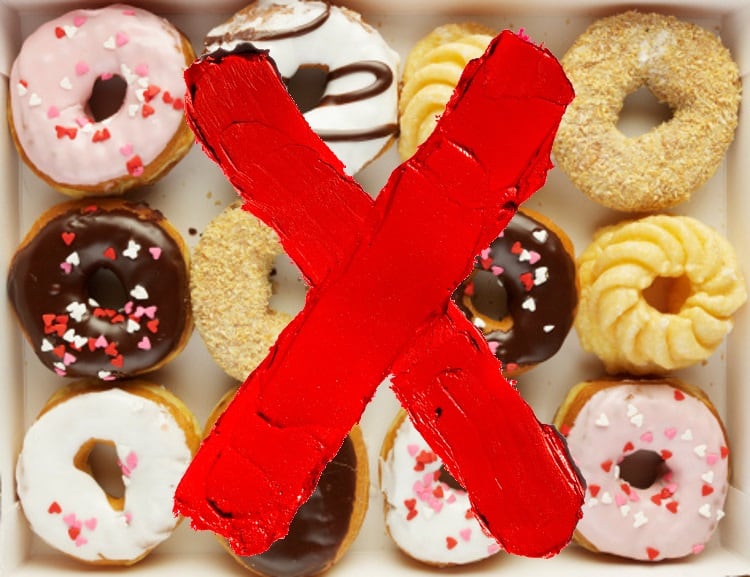
This includes the following products of all sizes, shapes and types of packets (grab bags, multipacks, re-sealable):
- Savoury snacks, whether intended to be consumed alone or as part of a complete meal, including:
- products made from potato, other vegetables, grain or pulses
- extruded, sheeted and pelleted products
- bagged savoury crackers, rice cakes or biscuits such as crisps, pitta bread-based snacks, pretzels, papadums, salted popcorn and prawn crackers (but not raw, roasted, coated or flavoured nuts)
- Pork rind-based snacks, whether intended to be consumed alone or as part of a complete meal.
- Breakfast cereals (ready-to-eat, granola, muesli, porridge oats and other oat-based cereals)
- Cakes and cupcakes (muffins, brownies, doughnuts, frozen, etc) and morning goods (croissants, crumpets, pancakes, Danish pastries, etc)
- Sweet biscuits (filled and unfilled) and bars based on one or more of nuts, seeds or cereal, including free from products
- Pizza (except plain pizza bases)
- Desserts and puddings (pies, tarts, sponge puddings, meringues, etc.)
- Prepared soft drinks containing added sugar ingredients
- Confectionery including chocolates and sweets, including ice cream, frozen yoghurt, etc.
- Sweetened (with sugar or otherwise) yoghurt and fromage frais
- Potatoes (road, chips, fries, waffles, novelty shapes, hash browns, etc.)
- Products ready for cooking or reheating without further preparation and intended to be consumed as a complete meal.
- Breaded or battered fish, meat, veg, etc, along with substitute products (fish fingers, chicken nuggets, etc)
This is just a thumbnail description, and more detailed lists can be accessed here.
Who is affected and who is exempt?
The regs apply to businesses operating in and selling to England.
The promotional and positioning constraints affect ‘medium and large’ businesses, which the government defines as having 50 employees or more.
The promo limit will only include paid ads, not organic posts on social media feeds or a brand’s website.
Small businesses (50 or fewer employees) are unaffected by either promotional restrictions or advertising restrictions.
Medium businesses (50-250 employees) are affected by promotional restrictions but not advertising restrictions.
Large businesses (250 employees +) are affected by both promotional restrictions and advertising restrictions.
The location restriction applies to retail stores are over 185.8m2 (2,000 sq ft). Specialist retailers that focus on a single category (for example, chocolatiers, confectioners or cake stores) are exempt from location restrictions, but must comply with volume price promotion restrictions.
A prepacked product provided for free or at a lower price by a foodbank, care home or education institution, or charity in order to raise funds for charitable activities, are exempt.
The out of home sector – such as bakeries – does not need to comply with location and volume price regulations for all foods, including prepacked foods, but must comply with the restrictions on the free refills promotion of certain drinks.
Failure to comply with regulations may result in a business being issued with an improvement notice and subsequently a fixed monetary penalty if compliance is not achieved as required.
Concessions

The restrictions offer a number of concessions – ranging a separate businesses operating in an area within the store of a qualifying business to vending machines and certain products (such as foods used for special medical purposes, infant formula or alcoholic drinks with more than 1.2% ABV, among others).
Short-termism
Mark Jones, partner and food & drink supply chain expert at law firm Gordons, also expressed doubts of the future of the strategy.
“We’ve seen manufacturers, including Kellogg’s, challenge the definition of HFSS because they think the ban on promoting products or displaying such products in prominent positions is likely to result in reduced sales,” said Jones.
“But challenging primary and secondary legislation is a difficult task.
“Others have focused on new product development, with a number of brands launching low sugar variations of popular products in recent months that won’t be subject to any restrictions.
“Liz Truss recently raised the possibility of scrapping the anti-obesity strategy but the phase 1 restrictions are going ahead and retailers need to be sure that they display HFSS foods in-store or online in line with the new regulations.
“All eyes will now be on the future of this strategy – could the PM’s comments mean the promotion restrictions on HFSS foods (due to come into force in October 2023) and banning advertisements for HFSS products on TV before 9pm and in paid-for online ads (due to come into force in January 2024) will be amended, delayed or even abandoned?”
The UK’s obesity rate

Jones noted that currently, 28% of UK adults are obese and a further 36% are overweight.
“Childhood obesity rates in England soared during the pandemic reaching an all-time high … 28% of children are now overweight and 41% of 10–11-year-olds are overweight, which doesn’t bode well for the future,” he added.
“Obesity currently costs the taxpayer more than the police, fire service and judicial system combined. The new government may be concerned that HFSS are unnecessary regulations, but something needs to be done to tackle rising obesity rates.
“More short termism won’t make people thin.”


